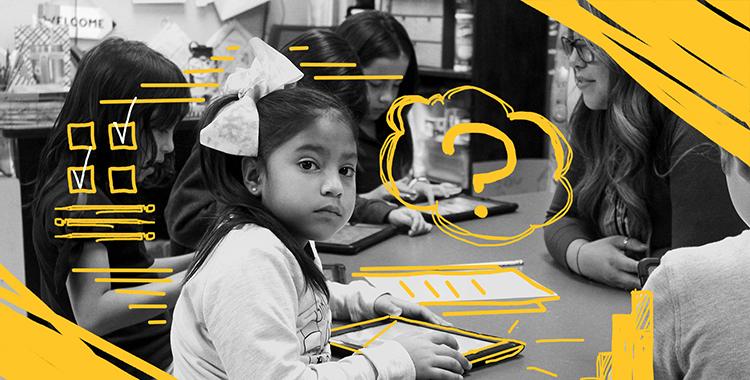To personalize learning, personalize teaching

Earlier this month, Education Week published a special report comprising a series of articles that address the challenges and promise of personalized learning. Based on a survey of nearly 600 teachers, the report offers considerable insight into how practitioners feel about their experience with whatever is called “personalized learning” in their schools.
Some of the highlights from the survey:
- System leaders are more bullish than teachers about personalized learning.
- Teachers use technology more for content delivery than for assessment or setting up learner profiles.
- Teachers resist letting students set their own learning goals.
- Professional development related to personalized learning is, at best, a mixed proposition.
That last point, I would argue, likely determines the preceding ones. I would further argue that the constellation of questions about how professional educators should approach personalized learning demands a response bigger than what we usually think about when we think about professional development in P–12 education. This isn’t only about building knowledge, skills and dispositions in individual teachers.
Realizing the promise of personalized learning presents a comprehensive design challenge for the profession.
The promise of personalized learning
What is that promise?
As one article in the Education Week report duly notes of “personalized learning,” “the term is used to mean just about anything.”
Still, many of the core concepts that animate current discussions about personalized learning have been around long enough that David Dockterman could publish a paper last year called Insights from 200+ Years of Personalized Learning. The idea of adapting instruction to individual learners has always been at the core of any meaningful concept of good teaching. What’s new is the potential role of technology.
As the predictive and analytical capabilities of computing have increased, educational reformers, ed tech companies and researchers have explored the promise of more customized learning experiences, more accurate assessment and much else for which educators have long pined. While we may not be able to fix a precise definition of personalized learning, we can identify a fairly recognizable space of activity with a high volume of signals around the following concepts: learning platforms; adaptive software; data-informed instruction and assessment; student-directed learning; differentiated or individualized instruction; competency-based assessment; real-time feedback.
The promise, in other words, is that these things, shaken and stirred in the right proportions, can help education reconcile the mandate of democracy with the promise of personalization. It’s a big promise. Delivering individualized attention at scale has always been hard.
Which gets us back to the relationship between professional development and personalized learning.
Personalizing teaching through teams
If the distinguishing goal of personalized learning, broadly conceived, is to liberate learning from an assembly-line experience and meet children where they are, we’ll never succeed if we continue to ask all (or too many) individual teachers to endure their own assembly-line experience.
Previously, I’ve written (and I’m not the only one) about how bad it is that we ask all teachers to be all things to all learners at all times.
If personalization means increasing the number of learning routes to better fit the needs of different learners, we are asking teachers to do even more under the banner of personalized learning than we have been asking them to do under the one-teacher-one-classroom model.
Well, that won’t work if we continue to place ever more demands on that one proverbial teacher.
If we’re serious about sustaining multiple learning paths, we'd better be just as serious about creating learning environments in which we ask different educators to meet different needs.
That insight drives the work of the Next Education Workforce initiative at ASU’s Mary Lou Fulton Teachers College, and it drives our commitment to working with school partners to create teams of educators with distributed expertise that can reasonably be expected to deliver meaningful personalized learning.
Personalized learning for students has to mean role-based specialization for educators. It has to mean that we think hard about the mix of socio-emotional support, academic assessment and instruction; that we think hard about who’s in the room to provide individual tutoring, mediate technology and facilitate small and large group instruction.
So, when Education Week reports that most of the teachers surveyed weren’t satisfied with the professional development received in connection with personalized learning, that’s probably a significant signal that we probably need to think as much about what professional development is as we do about what personalized learning is.
And we should probably begin by more rigorously and intentionally personalizing professional development in ways that are designed to prepare individual educators to be effective members of educational teams.
The more I think about this, the more I see a paradox, and it’s a paradox that encourages me:
To personalize learning, we have to personalize teaching. And yet, to personalize teaching, we have to make teaching a more collaborative, even social act.